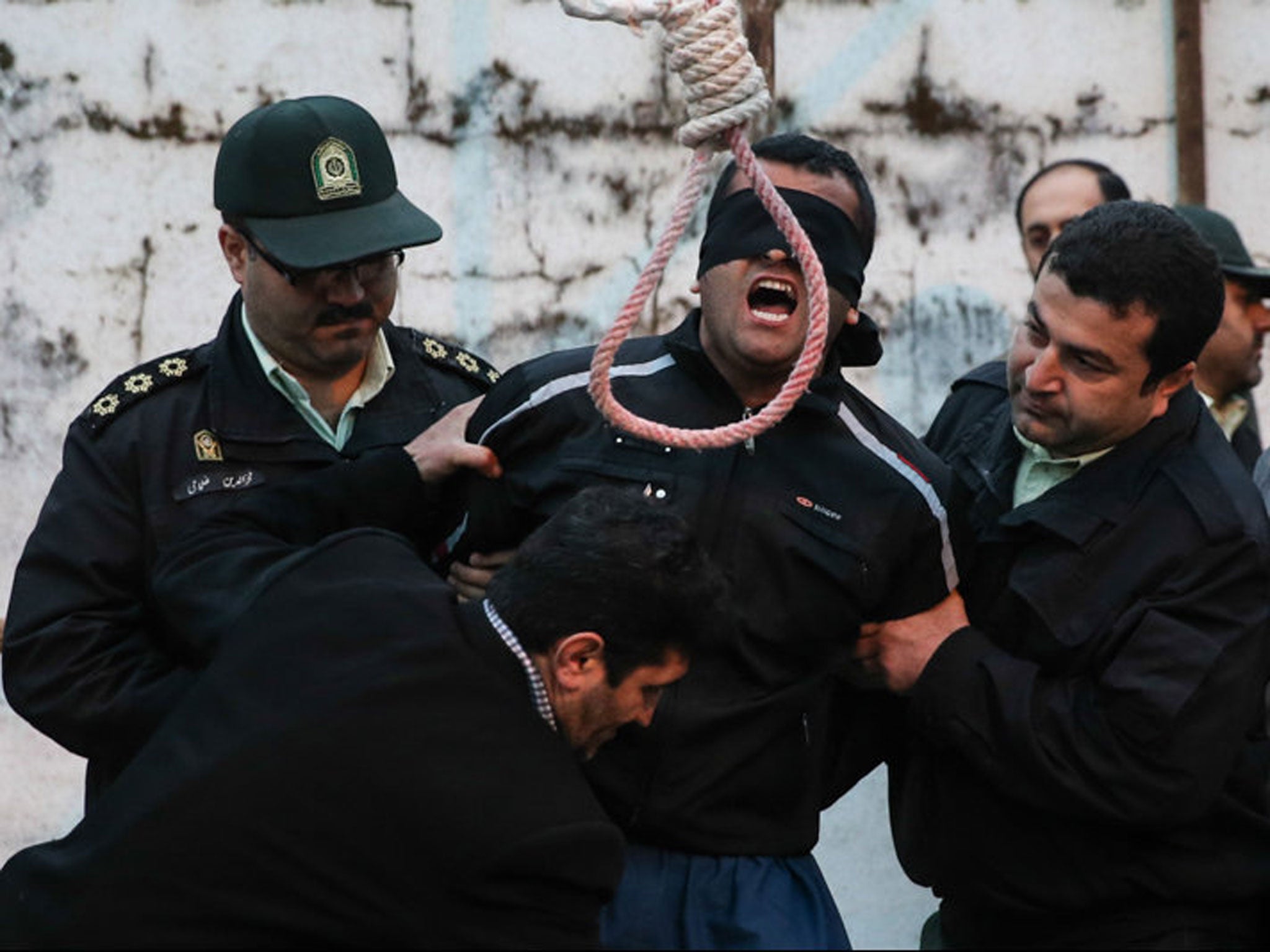Iranian child bride facing execution for killing abusive husband she married at 14
Razieh Ebrahimi has been refused a pardon by her husband's family like the one shown above

Your support helps us to tell the story
From reproductive rights to climate change to Big Tech, The Independent is on the ground when the story is developing. Whether it's investigating the financials of Elon Musk's pro-Trump PAC or producing our latest documentary, 'The A Word', which shines a light on the American women fighting for reproductive rights, we know how important it is to parse out the facts from the messaging.
At such a critical moment in US history, we need reporters on the ground. Your donation allows us to keep sending journalists to speak to both sides of the story.
The Independent is trusted by Americans across the entire political spectrum. And unlike many other quality news outlets, we choose not to lock Americans out of our reporting and analysis with paywalls. We believe quality journalism should be available to everyone, paid for by those who can afford it.
Your support makes all the difference.A child bride who murdered her husband in Iran after years of abuse is due to be executed.
Razieh Ebrahimi was married at 14, had a child at 15, shot her husband at 17 and is now on death row aged just 21.
Charities including Human Rights Watch are fighting to have her sentence repealed and hold it up as an example of brutal capital punishment in Iran and other countries.
International law prohibits the execution of child offenders but in Iran, girls as young as nine and boys aged 15 or older can be killed for some crimes, including murder.
Authorities arrested Ebrahimi – called “Maryam” in the local press – four years ago after she shot her husband in the head as he was sleeping and buried his body in the garden, a source told Human Rights Watch.
Imprisoned in the city of Ahvaz, she admitted guilt and said she snapped after several years of physical and verbal abuse at the hands of her husband.
Joe Stork, the deputy Middle East and North Africa director of Human Rights Watch, said the execution order should be reversed.
He added: “Every time an Iranian judge issues a death sentence for a child offender like Ebrahimi, he should remember he is flagrantly violating his legal responsibilities to administer justice fairly and equitably.”
Prison authorities reportedly attempted to carry out her execution earlier, but when she told them she was 17 when she killed her husband they returned her to her cell.
Following recent changes to Iran’s penal code, her lawyer requested a retrial from the Supreme Court on the basis that she had been under 18 and did not understand the consequences of her actions but the court refused.
In an interview with an Iranian online magazine, Ebrahimi’s lawyer, Hassan Aghakhani, said he hoped the judiciary could at the very least suspend his client’s sentence until all branches of the court applied laws on child executions uniformly.
Human Rights Watch is calling on the Iranian government to prohibit the death penalty for under-18s and impose a moratorium on all passed sentences.
Under Iranian law, murder victims’ survivors can pardon the killer but the husband’s family has refused.
In April, a woman in Iran dramatically pardoned her son's murderer at the last minute before he was hung, slapping him before the noose was removed.
Since 2009, Iran has executed at least 10 child offenders, making it the country with the world’s highest number of child executions according to Human Rights Watch.
Yemen, Saudi Arabia, Sudan, and Hamas authorities in Gaza have also executed juvenile offenders in the last five years.
Join our commenting forum
Join thought-provoking conversations, follow other Independent readers and see their replies
Comments